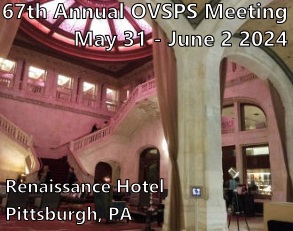<< Back to the abstract archive
Toll-Like Receptor Agonism with Thymosin Alpha 1 Improved Chronic Wound Resilience to Biofilm Adherence and Healing of Colonized Wounds.
Phoebe Lee, BS, Shawn Jeffrey Loder, MD, Wayne Vincent Nerone, BS, Fuat Baris Bengur, MD, David Guerrero, BS, Rachel Ricketts, Lauren Kokai, PhD.
University of Pittsburgh Department of Plastic Surgery
2022-01-15
Presenter: Phoebe Lee
Affidavit:
Certified
Director Name: Kacey Marra
Author Category: Medical Student
Presentation Category: Basic Science Research
Abstract Category: General Reconstruction
Background/Purpose: Biofilm formation is a critical barrier to chronic wound healing. Macrophage activation by toll-like receptors (TLRs) is critical to control and clearance of biofilms. Thymosin alpha-1 is an activator of the innate immune response in part via TLR2/4/9 stimulation. Here we sought to determine if Thymosin alpha-1 modulation of TLR signaling reduces biofilms and improves closure in infected diabetic wounds.
Methods: Male obese diabetic (B6.Cg-Lepob) mice received bilateral edge-inverted wounds. After 1-week intraperitoneal thymosin alpha-1 daily was initiated. Concurrently, Lubbock-type pre-made polymicrobial biofilms were generated transferred murine wounds. After 72-hours wounds were photographed for biofilm adherence and sacrificed for flow cytometry of granulation tissue. Samples were gated to determine CD11b(null), (low), (med), and (high) populations. Relative fraction of macrophages (CD11b+Ly6G-F4/80+) and neutrophils (CD11b+Ly6G+F4/80-) were assessed.
Results: Thymosin alpha-1 treated animals demonstrated 46.6% reduction in biofilm adherence. Granulation tissue collected from infected chronic wounds demonstrated significantly increased macrophage enrichment after treatment for CD11b(low; 1.11+/-0.07% [vehicle control] vs 2.99+/-0.12% [Thymosin alpha-1]; p<0.05); (mid; 0.71+/-0.03 [vehicle control] vs 2.05+/-0.09% [Thymosin alpha-1]; p<0.05); and (hi; 0.35+/-0.03% [vehicle control] vs 0.91+/-0.04% [Thymosin alpha-1]; p<0.05) populations. 1-week post-infection, no further evidence of healing was noted in infected wounds from vehicle-treated mice (107.98+/-13.30% pre-treatment) vs. decrease by 69.63+/- 8.69% (p=0.013) in treated samples.
Discussion/Conclusion: Thymosin alpha-1 improved the resilience of diabetic wound against biofilm adherence and colonization and generated a more robust macrophage-dependent response to biofilm presence. This resulted in enhanced wound healing vs. untreated infected samples.



